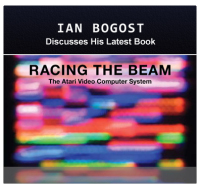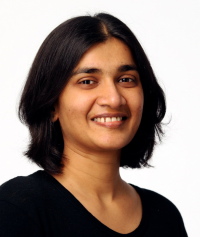Ivan Allen College
2009 Founder's Day Awards Luncheon




Georgia Tech is offering a summer session like no other in history with a greatly expanded course selection across all six Colleges. The Ivan Allen College has one of the largest Summer 2009 course schedules with more than eighty classes in both 5-week and 11-week formats. Subjects range from film studies to global economics, from Arabic to the history of the Vietnam war, and from great power relations to environmental ethics. History, Technology, and Society is offering a brand new class in Science, Technology, and Modern Society.

Douglas A. Blackmon packed the hall of the Georgia Tech Library February 12 lecturing on his book Slavery by Another Name: The Re-enslavement of Black Americans from the Civil War to World War II. In a lecture organized by Eleanor Alexander, School of History, Technology, and Society, Blackmon revealed little known history of African-Americans who were forced to work on plantations, in coal mines, and factories in the South after the legal abolition of slavery in 1865.
After the Civil War, hundreds of thousands of African-Americans were arrested on bogus charges. Unable to pay fines and court charges, industrialists or ordinary citizens paid the fees through a system that obligated the prisoners to work for their benefactors for an indeterminate number of years. The men were seldom freed, lived in primitive shacks, and were whipped, barely fed, and some were even chained when not working. Prisoners were often sold at a profit to citizens or companies, and most died under this form of neo-slavery. Although the federal government was aware of the forced labor in the South, it did not intervene to stop human labor trafficking that supported the profits of modern companies until the system’s demise in the 1940s.

On February 25th Ivan Allen College welcomed prominent speakers from Spelman College: Johnella Butler, author and Provost and Vice President for Academic Affairs, and Beverly Guy-Sheftall, Director of the Women’s Research & Resource Center. Introduced by Ivan Allen College Dean Sue V. Rosser, the professors delivered a joint lecture titled Transforming the Curriculum: 21st Century Imperatives.
Butler and Guy-Sheftall framed their lecture around their personal histories; both grew up “within earshot” of the Civil Right Movement in which, they noted, English educators were a driving force. That has informed their perspectives on education throughout their twenty years working together.
An outgrowth of a five-year review of the curriculum at Spelman, the lecturers called for a continuing dialog with Georgia Tech to rethink “how and what we teach” largely catalyzed by Black women’s studies. They emphasized that educators “have not transformed our curricula to be welcoming to all on all levels” and need to re-conceptualize diversity for the 21st century. Understanding dimensions of blackness in the post-racial era provides the context for curricular transformation based upon three imperatives: 1) Engaging diversity nationally and internationally through intersectionality, 2) Recasting general education and majors to engage diversity in pedagogy and in the development of knowledge and, 3) addressing issues of race in the sciences.

Sheftall views education “as a practice of freedom” decrying hegemonic norms defined by whiteness and maleness and expressed through a European-obsessed scientific history that de-feminizes and dehumanizes Africans. Rather than beginning English Literature classes with the Iliad and the Odyssey, Sheftall illuminates black third world womens’ experiences or those of the Navajo. “White and male students need an inclusive curriculum and oppositional pedagogies,” said Sheftall. The two cautioned that “you can’t do a little bit of diversity.” Rather, educators must challenge the fundamental framework: Black rights provide a foundation for extending the rights of all, and reflecting that in curriculum prepares students for a world where people of color are the majority.

In February, the Center for International Strategy, Technology, and Policy (CISTP) hosted U.S. and Korean diplomats and a stellar roster of experts and scholars at a conference, "Six Party Talks and Korea's Energy Security.” Eminent diplomats, policymakers, technical experts, and scholars from the United States, South Korea, and North Korea analyzed the tense situation on the Korean Peninsula, and its implications for advancing regional and global energy cooperation.
The February 26th conference occurred just as the Obama administration announced that it was taking steps toward a renewal of the six-party talks process and reports that North Korea was preparing to test-fire its long-range missile. CISTP Co-director Adam Stulberg said, “As differences between U.S. and South Korean approaches to engaging North Korea come under greater scrutiny amid escalating political and economic tensions on the peninsula, there will be growing pressure to search out new areas for deepening cooperation, especially on energy security. In light of persistent difficulties with implementing the denuclearization agreement, the surging Korean demand for energy, and the focus on energy diplomacy in the U.S., the future trajectory of the Six-Party process is becoming increasingly tied to energy security, creating challenges and opportunities for sustaining cooperation not only on the peninsula but across the region."
Remarks from Kurt Tong, the U.S. State Department's Director of Korean affairs and of Minister Kim Myong-gil, North Korea’s representative to the United Nations were designated as “off-the-record” and not for publication, but other diplomats and experts offered perspectives on policy.
Read more about the conference in CNN article

In his new book, Racing the Beam: The Atari Video Computer System (MIT Press), Literature, Communication, and Culture Associate Professor Ian Bogost examines how the first dominant video computer game system shaped the fledgling gaming industry.
Co-authored with Nick Montfort, Racing the Beam begins a new Platform Studies Series offering a detailed and accessible study of the rarely explored territory of the systems underlying computers. In Beam, Bogost and Montfort develop a critical approach examining the relationship between platforms and creative expression. Their lenses are six game cartridges that were developed in the late 1970s for the Atari Video Computer System (VCS): Combat, Adventure, Pac-Man, Yars’ Revenge, Pitfall!, and Star Wars: The Empire Strikes Back.
Atari so dominated home video games that the name became the generic term for videogame console. Bogost contends, “It’s an extremely important piece of video game history, yet no one has written seriously about it in video game research—or really even in popular culture. It’s worth doing this not just to geek out on retro chic, hipster stuff. Rather, we ought to take the history of video games as seriously as we would take the history of any cultural object. The influence of the Atari VCS and its games on later titles—including today’s games—is significant, extremely significant in our opinion and not obvious.”
Ian Bogost will lecture and sign copies of Racing the Beam: the Atari Video Computer System on April 2, 12 noon at the Georgia Tech Barnes & Noble.
Public Policy Professor Philip Shapira and Dr. Jan Youtie, Principal Research Associate at Georgia Tech's Economic Development Institute have released updated data from their nanotechnology research activity database.
Given the rapid growth and multidisciplinary nature of nanotechnology, the ability to map the boundaries of this emerging field is central to understanding its research paths and commercialization prospects. Shapira and Youtie have developed a search strategy that enables them to create real-time databases of nanotechnology research activity in the U.S. and globally, through Georgia Tech's Program on Nanotechnology Research and Innovation Systems Assessment which partners with the Center for Nanotechnology in Society at Arizona State University. Nano research publications are identified using Science Citation Index (SCI) records from the Web of Science (WOS) reference tool. Nano publications can then be represented as a percentage of overall SCI publications.
This nano research database has recently been updated to reflect nanotechnology publications from 1990 through June 2008. The data indicate that there has been growth in absolute annual publication numbers for every year from 1990 through mid-2008. However, there have been fluctuations in the rate of growth, with four observable periods: the first period (1990-1996) represented a steadily increasing share of nano publications; the second period (2001-2005) saw a steep rise in share; the third period (2005-2007) showed a slight downturn in the rate of nano publication growth in 2006-2007; but in the fourth period (first half of 2008) the percentage is again larger. Similar updates to databases indicating nanotechnology publications in China show that China continues to gain on U.S. nanotechnology research and engineering publication activity. For more information on nanotechnology research and innovation systems assessment, see http://www.nanopolicy.gatech.edu
Shapira and Youtie, with Public Policy Professor Juan Rogers, direct the Georgia Tech Program in Science, Technology and Innovation Policy (STIP) --a collaborative initiative of the Ivan Allen College, School of Public Policy and the Georgia Tech Enterprise Innovation Institute.

The first legislation signed into law by President Obama was the Lilly Ledbetter Fair Pay Act, so named for the woman who brought suit against Goodyear claiming equal pay for equal work. The occasion prompted Colonel Sheri Andino, commander of the Georgia Tech Air Force Reserve Officer Training Corp (AFROTC), to reflect that the military has been “out in front” of the private sector in matters of equality and advancement for women.
“I didn’t go into this thinking I would make it a career; few of those who enter do,” said Andino. “But the military offered good opportunities for advancement to women. My work was recognized and valued by the military, and from the beginning, it offered equal pay.” Andino applauds Georgia Tech for leading the nation in admitting the first women to ROTC in 1952. The bold request to join the AFROTC was made by two of Georgia Tech’s 15 female students at that time - Chemical Engineering major Teresa Thomas of Marietta and Aeronautical Engineering major Jackie Easton from Florida. The request met with laughter, rejection by the Dean, and then an invitation from ROTC leadership to “come by and talk.” The women were ultimately admitted, though not granted official status or cadet pay, and even had to buy their own uniforms at $70 each. Georgia Tech ROTC officially admitted women to the program in 1970, and 1977 saw training for the first women pilots. Andino achieved another first for women at Georgia Tech when she became the first female commander of the Air Force unit.
Today, more than 20% of Air Force cadets at Tech are female and the role of women across the military has greatly expanded as evidenced by the Army recently awarding its first female four-star general. “Anytime you have diversity you have strength,” said Andino. “Women often bring a different background and perspective.” She added that “the leadership opportunities, camaraderie, and the appeal of being part of something bigger than ourselves” is attracting an increasing number of women and men from all walks of life to the military. Many can’t see doing what they’re doing for the rest of their lives and are interested in our mission.”

The Information Technologies and International Development Journal (ITID) has raised the bar on best practices for online journals. In February, the ITID launched a new 2.0 open access version of its website.
Editor-in-chief, Michael Best, Professor, Sam Nunn School of International Affairs writes, “The Internet has fundamentally changed all aspects of scholarly communication. Top journals must continuously track (and invent) new ways to use the net that improve the publishing process and the readers’ experience in order to foster a richer intellectual exchange. We believe that ITID shot ahead of this curve when we went open access with our third volume (the first open access journal published by the MIT Press). With our new Web site, we have moved further on this journey, now offering what we think is today’s best-practice in online journal environments.”
The site re-launch was supported by Microsoft and developed in cooperation with the Georgia Tech Library and Information Center. “We hope the site can serve as a model of what libraries and scholars can accomplish together in the field of open-access scholarly publishing,” said Julie G. Speer, Head of the Library’s Scholarly Communication and Digital Services Division at Georgia Tech. Co-edited by professors in University of Southern California’s Annenberg School for Communication, the ITID Journal is an interdisciplinary open-access journal that focuses on the intersection of information and communication technologies (ICTs) with countries that are not yet widely connected to the Internet nor widely considered in the design of new information technologies.
Visit ITID

Jahnavi Phalkey, who earned her PhD from the School of History, Technology, and Society (HTS) in 2007, has won the 2008 Sardar Patel Award from the Center for India and South Asia, and the Department of History, University of California, Los Angeles. The award is for the best dissertation on the subject of modern India submitted at any American university during the academic year. Phalkey’s dissertation topic was “Science, State Formation and Development: the Organization of Nuclear Research in India, 1938-1959.” Her supervisor was HTS Professor John Krige.
More information about the Sardar Patel Award
School of Public Policy Emeritus Professor, Alan L. Porter, has been recognized by the International Association of Management of Technology (IAMOT) as one of the top 50 authors of technology and innovation management over the last five years. The award places Porter within the top one percent of researchers in the field based upon a quantitative analysis of research from 2003-2007. Porter co-directs the Technology Policy and Assessment Center (TPAC) at Georgia Tech and teaches technology forecasting and assessment, and management of technology. He has authored some 160 professional publications.

Assistant Professor, Jenny Leigh Smith, joined the School of History, Technology, and Society in Spring 2009 bringing to Georgia Tech its first undergraduate classes in Russian history. Smith earned her PhD in History and Anthropology of Science, Technology and Society from MIT. Most recently, she spent two years as a postdoctoral fellow and lecturer at Yale University in the Program in the History of Science and the History of Medicine. She has been published in an edited volume, Food Chains: Provisioning from Farmyard to Shopping Cart, and in the Modern Encyclopedia of Russian, Soviet, and Eurasian History.
With a broad focus in the history of technology and the environment, Smith’s research areas include the history of modern technology, Russian and Soviet history, industrial food and agriculture, the environmental legacy of the Cold War, and the impact of impact of 20th century Russia’s policies and industrialization on the environment of the far northern European countries.
Smith plans to create an international environmental history of the Norwegian archipelago of Svalbard using Russian, Norwegian and Dutch archival records. Currently, she is making revisions on her first book Animal Farms, a study of the industrialization of Soviet agricultural and its impact on the environment and national diet. Smith shared an insight about Russian attitudes toward food; food scarcity is fresh in the minds of modern Russians so their view of diet is the inverse of the west - in Russia, fat is good. Food advertisements tout high fat-sugar dense foods as beneficial. Smith recently published a paper on one of Russia’s favorite health foods – ice cream – citing a dairy technologist who wrote that ice cream "is a healthy and delicious food...and should be included in the menu at breakfast, lunch and dinner."

Joy Guan’s experience of the Ivan Allen College and Georgia Tech is of an ever-broadening circle of knowledge that has brought her future into focus. A junior majoring in economics with minors in Spanish and public policy, Guan places a high value on the personal attention and guidance she’s received from faculty and advisors. “They helped me find the best direction for me,” says Guan, “and encouraged me to pursue my interests in Spanish, language immersion, and travel.”
Guan, who speaks Mandarin Chinese, French, English, and Spanish, is in her second year living in Georgia Tech’s International House. Guan lives in the dorm that is half exchange students and half U.S. students with an interest in international affairs and culture. “It so amazingly touches the heart,” says Guan. She believes the program is one of the best on campus. “The value,” says Guan, “extends far beyond the simple experiences. We constantly learn from each other about our cultures, histories, values, perspectives - everything.”
Those interactions have helped Guan find direction for her career. She was deeply affected by reading a selection from the I-house book club, The Girl with the Dragon Tattoo, a Swedish work with traumatic representations of sexual violence. “I had difficulty sleeping after reading that, but it made me realize the intensity of the problem that we never talk about in our society.” The book shaped Guan’s decision to pursue a career in the non-profit arena, fighting for an end to sexual violence globally. “I can help those organizations become more economically efficient in order to reach a broader audience with assistance and awareness.”
Guan has already mobilized toward that goal by becoming heavily involved in the Women’s Awareness Month activities on campus, including the recent “Take Back the Night” vigil; volunteering at a shelter for victims of domestic violence; the Red Dress Fashion Show; and The Vagina Monologues. She is a member of the Ivan Allen College Student Advisory Board, Phi Sigma Pi National Honor Fraternity, and is looking forward to being inducted into Omicron Delta Epsilon International Honor Society for Economics. Guan plans to pursue the President’s Undergraduate Research Award under the guidance of Economics Professor Christine Ries.
©2009 Georgia Institute of Technology :: Atlanta, Georgia 30332